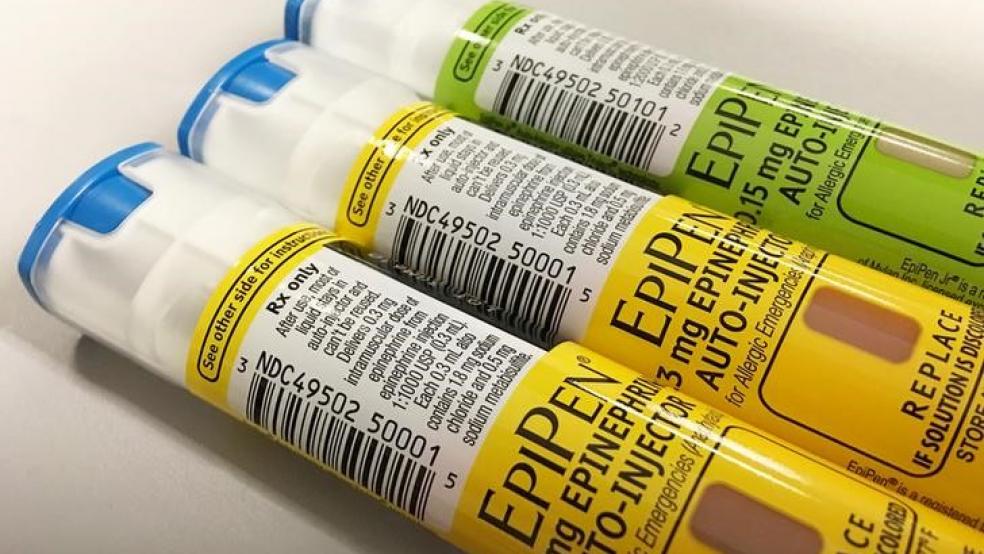The federal government appears to have shelled out more than $1.27 billion in overpayments to the drug company Mylan, which holds the patent on the widely-used EpiPen, an auto-injector for epinephrine, an investigation by the Department of Health and Human Services’ Inspector General has determined.
The report was made public on Wednesday by Iowa Sen. Charles Grassley (R), who has been pressing the company for answers about an apparent misclassification of the drug that allowed Mylan to avoid offsetting rebate payments to the federal government under the Medicaid Drug Rebate Program.
Related: Mylan Admits It Makes Far More on EpiPens Than It Originally Reported to Congress
The IG’s office had already determined that Mylan improperly classified EpiPens as generic medications. Strictly speaking, this was true. Epinephrine is not under patent. But the EpiPen delivery device itself is patented, and Mylan increased the price of a two-pack of the lifesaving medication from $100 in 2007 to as much as $700 by 2016.
Because Mylan classified EpiPens as generic, the company did not issue rebates to the government that are meant to kick in when the price of a brand-name drug increases at a rate faster than inflation. It would also have owed the government rebates based on the difference between its cost of manufacturing the device and the “best price” it offered on the market.
In testimony before Congress last year, it was revealed that the misclassification of the EpiPen had been pointed out to Mylan multiple times by HHS, but that the company had taken no action.
The company has been under intense congressional scrutiny over the past year. Practices that were widely seen as price-gouging seemed particularly offensive to members of Congress for at least two reasons. First, the availability of the drug is literally a matter of life and death for many people with severe allergies. Second, many federal, state and local agencies, including schools, are required to have EpiPens on site at their offices, meaning that lawmakers themselves have created a captive marketplace for Mylan above and beyond the health care entitlement programs Medicare and Medicaid, which spend billions on prescription drugs.
Related: How Mylan Soaked Medicare and Taxpayers for EpiPen Profits
Tempers on Capitol Hill began to flare last fall, after the company’s CEO admitted that she had given lawmakers incorrect information when she told them that the company’s average profit on a package of the auto-injectors was about $100. A later report indicated that the company was actually clearing 60 percent more than it told Congress, or $160 per package.
In a statement Wednesday, Grassley said, “The fact that the EpiPen overpayment is so much more than anyone discussed publicly should worry every taxpayer. Mylan and the Obama Administration reportedly were close to settling the overpayment for much less than $1.27 billion. CMS recently provided records to the Committee that show Mylan was made aware of the misclassification years ago but did nothing. It looks like Mylan overcharged the taxpayers for years with the knowledge EpiPen was misclassified, and the previous administration was willing to let the company off the hook.”
He added, “The government needs to do a much a better job of holding companies to their commitments in federal health care programs. It appears the Obama Administration failed to use all available tools to hold Mylan accountable. The taxpayers deserve more from their government and don’t need to give anyone a blank check.”





